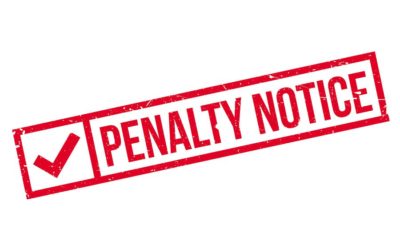Maryland Tax Court Holds Minority Member Partially Liable for Unpaid Income Tax Withholding
Overview
In Judge v Comptroller, No. 17-IN-00-0724 (Sept. 25, 2018)(link), the Maryland Tax Court overturned the Maryland Comptroller’s finding that Petitioner was personally liable for Maryland income tax withholdings for the period after the Petitioner was no longer involved in the business operated by a Maryland limited liability company (“LLC”).
Background
At issue was the unpaid Maryland income tax withholdings for a Maryland LLC that operated a hair salon. The members were in over their head and ran into financial trouble. As a result, the LLC did not pay its 2012 and 2014 Maryland income tax withholdings.
The Petitioner was a 40% member of the Maryland LLC. The other member, who operated the salon, owned the remaining 60% of the membership interests. The other member was also the tax matters partner for the LLC under the terms of the partnership agreement executed by both members.
The Petitioner supplied capital for the business and he had some minimal involvement in the business until the July 1, 2013, when the members executed a dissolution agreement. After the dissolution, the Petitioner had no contact with the other member and was not involved in the business. It is not clear from the opinion that the dissolution was effective under Maryland state law, however it was clear that Petitioner was no longer involved in the business after the dissolution was signed.
The Maryland Comptroller personally assessed the Petitioner for all of the LLC’s unpaid Maryland income tax withholdings for 2012 and 2014. Petitioner appealed this determination to Maryland Tax Court.
Personal Liability for Maryland Income Tax Withholding Failure
Exercise versus Authority Act
Under MD Tax Gen § 10-906(d)(3) (link), the income tax withholding obligations for a Maryland business operating through an LLC extends to “any person who exercises direct control over fiscal management.”[1]
The Maryland Tax Court focused in on the terms “exercise” and “direct control over its fiscal management.” The court determined that, based upon the plain meaning, the term “exercise” indicates some actual involvement in business; mere authority to control “fiscal management” is insufficient.
In addition to the statute’s plain language, the court compared § 10-906(d)(3) with Md. Code Estate & Trusts Article § 15-113(1). Under § 15-113(1), extends liability for certain estate and trust liabilities to entities under common control with a trust company if the entity “may exercise trust or fiduciary powers.” The court focused on the word “may”, which indicated that liability would be extended based upon the authority to exercise certain powers. The Maryland Tax Court noted that if the Maryland legislature wanted to extend liability in § 10-906(d)(3) for mere authority to control fiscal management, even if it was not utilized, then the legislature could have added “may” as it did in § 15-113(1).[2]
What does “fiscal management” mean?
After analyzing “exercise”, the court turned to the meaning of “direct control over fiscal management.” The court reviewed a Maryland Court of Special Appeals case: Comptroller v. House, 68 Md. App. 560 (1986) (link). In House, the Maryland Court of Special Appeals analyzed whether a taxpayer was personally liable for the business’s failure to collect and remit Maryland income tax under a previous, but analogous, Maryland code provision that used the same “exercises direct control over the fiscal management.”[3]
The business in House was a consulting business that assisted physicians in managing their practices. The taxpayer in House was a member of the board of directors of a corporation, but he was not listed as an officer and he did not provide consulting services to the business’s customers.[4] The taxpayer provided advice to the business on potential business opportunities, he provided loans to the business to meet payroll, he was involved in some personnel decisions, he helped in the selection and purchase of equipment, he kept apprised of the business’ financial status through annual meetings, and, when the business faltered through another individual’s management of the business, he attempted to help the business extricate itself from financial problems. However, the taxpayer was not involved in the business’s tax compliance function and he did not have knowledge of the business’s ongoing tax issues until the Comptroller stepped in.
The Comptroller concluded that the taxpayer exercised direct control over the fiscal management of the business. The Tax Court agreed, and the Maryland Court of Special Appeals upheld the Tax Court’s decision.
In reaching its decision, the court in House expressly rejected the argument that “direct control” requires day-to-day control. See House at 568.
Based upon the House opinion, it is clear that fiscal management does not require the individual to actually be involved in the day-to-day finances of the company nor the tax matters of the company. However, if the individual sets the direction of the company and he is involved in setting financial policies of the company, including during an attempt to solve financial problems created by others in the business, then the individual is likely to be considered exercising direct control over fiscal management.
Judge’s Exercise of Direct Control over Fiscal Management
In Judge, the Petitioner did not challenge that he exercised fiscal control for 2012. He only challenged the imposition of liability for 2014 since he was no longer active in the business. The Maryland Tax Court agreed that since he was no longer involved in the business as of mid-2013, then he could not be found to have exercised direct control over fiscal management. Therefore, the court held that he was not liable for the business’s failure to remit income tax withholding for 2014.
Partnership Agreement and Statutory Liability
Although the Petitioner did not argue that he did not exercise direct control over fiscal management in 2012, he did argue that he should only be liable for 40% of the liability since he was only a 40% member in the LLC under the terms of the partnership agreement.
The court disagreed: a “partnership agreement cannot take precedence over the statutorily established liability. Judge at 10 (citing Fox v Comptroller, 126 Md. App 279, 288-289 (1999)(link)). Although the partnership agreement may shape the members rights vis-a-via the other members, it does not alter the statutory structure and the personal liability under § 10-906.
However, while a statute may impose direct liability, the partnership agreement may provide recourse among the partners. As a result, if the Petitioner pays the Comptroller 100% of the tax, then the Petitioner may be able to seek restitution from the under partner under the terms of the partnership agreement. For Petitioner this may be unsatisfactory if the other partner does not have the wherewithal to reimburse the Petitioner.
Contrast with Personal Liability For Maryland Sales Tax
It should be noted the personal liability discussion in Judge and House only applies to Maryland income tax withholdings under Md. Code Tax Gen. 11-906. Personal liability for sales tax liability is created by Md. Code Tax Gen. § 11-601(d)(1)(link). As discussed in Fox, § 11-601 does not utilize the concept of “exercises direct control over its fiscal management.” Therefore, an individual can be held personally liable based upon a corporate title despite the fact that the individual does not exercise fiscal management. As a result, the analysis of “exercise” and “direct control over fiscal management” in Judge and House are limited to income tax withholding obligations. The analysis does not apply to the analysis of whether an individual is personally liable for Maryland sales tax.
Conclusion
Businesses owners and managers must understand that, despite the fact that their interest in business may be structured to limited liability (i.e., interest in a corporation, LLC, limited partnership), Maryland code provisions extend personal liability for various tax obligations and can trump such limited liability. In the case of Maryland income tax withholding obligations, an individual may be able to limit exposure to personal liability for the business’s failure to pay Maryland income tax withholdings if the individual is not involved with the fiscal management of the business. However, the individual must still consider whether their ownership interest and title carries risk of personal liability for Maryland sales tax, even if the individual is not involved in the fiscal management of the business.
Notes
[1] Md. Code. Tax Gen § 10-906(d)(2) extends personal liability, for business operating through a corporation, for “any officer of the corporation who exercises direct control over its fiscal management.” The statutory text is similar but it is limited to “officers” rather than to “any person” as in the case for LLCs. In both cases, the individual must “exercise direct control over fiscal management.”
[2] The Comptroller argued that businesses could shield themselves by assigning the actual payment of the income tax withholdings to a 3rd party. However, the court believed that this outcome was precluded because § 10-906 extends liability to agents of the limited liability company or partnership who are required to withhold and pay the income tax. The court also noted that “it would be difficult to envision a circumstance when no member of the functioning LLC would exercise direct fiscal responsibility.” On the other hand, it is not clear that there is a limit on the number of individuals that may at any one time “exercise” direct control over fiscal management. As a result, it appears that at least one individual will be deemed to “exercise” control for a functioning business, but more than one person may deemed to “exercise” control for any one period in time.
[3] The prior code section discussed in House was Md. Code. Ann art 81, § 312(h)(4) (1986).
[4] Although the taxpayer in House was not listed as an officer, the determination was made that he was an “officer” for purposes of § 10-906(d)(3).




